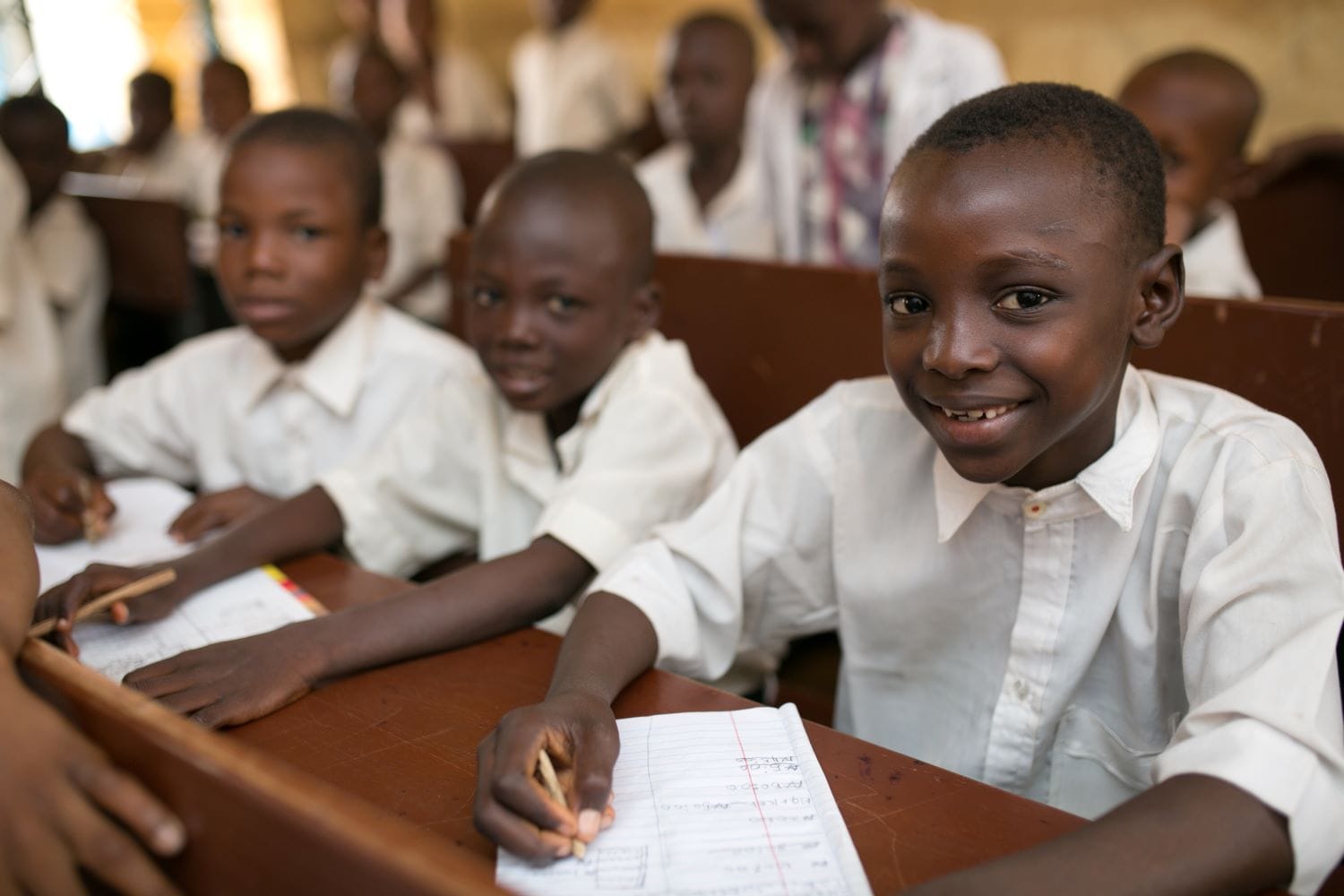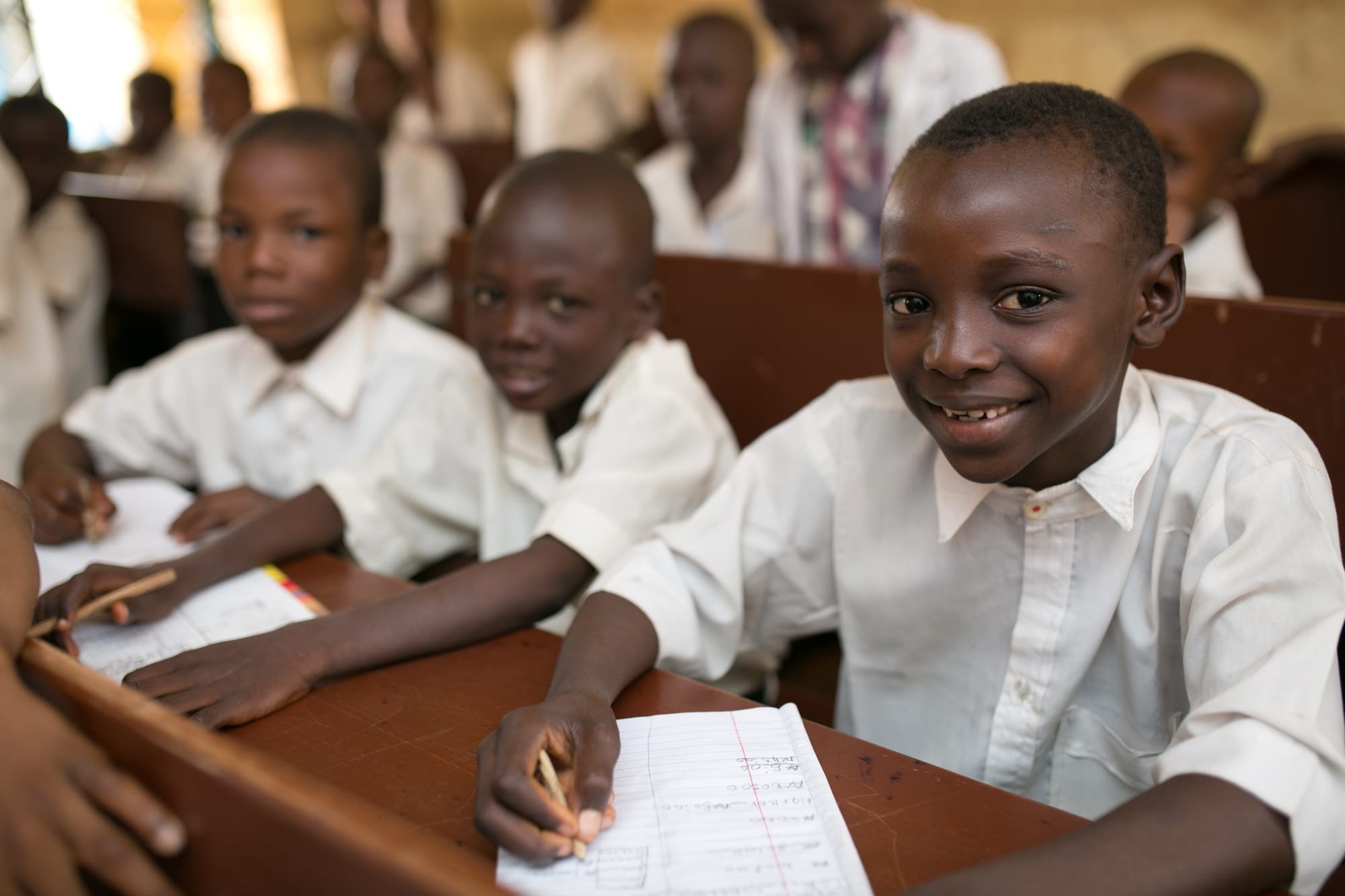Nigeria has made steady progress in expanding access to education. Primary enrolment has risen over the past decade and new classrooms are being added across the country, reflecting the sustained commitment of the Government of Nigeria and its partners. Yet many pupils still finish primary school without the literacy and numeracy they need to thrive. The task ahead is no longer simply getting children into classrooms, but ensuring the system turns access into achievement. Textbooks, training, and technology matter, yet without predictable financing, clear roles for educators and administrators, actionable data, and responsive leadership, even the best innovations struggle to take root.
Nearly 70 percent of 10‑year‑olds in low‑ and middle‑income countries cannot read and understand a short text. In Nigeria, this global challenge is compounded by delivery constraints: delayed funding, overlapping government mandates, and limited feedback loops. These constraints are not failures of intent. They are challenges of capacity and coordination that require long‑term investment in the institutions that deliver education. As the What Works Hub for Global Education notes: “Great ideas fail when education delivery systems cannot plan for, finance, or monitor them.”
Three Pillars in Practice
International research (from UNICEF’s Foundations of Learning and the RISE Programme to the Global Education Evidence Advisory Panel and the U.K. Foreign, Commonwealth & Development Office’s Smart Technical Assistance Guide) converges on a core insight: durable learning gains depend on three mutually reinforcing pillars. These pillars—alignment, accountability, and capacity—give governments and partners a shared language to diagnose bottlenecks, coordinate support, and track progress.
The Government of Nigeria has already woven these principles into national education plans, and the U.K.‑supported Partnership for Learning for All in Nigerian Education (PLANE) puts them to work on the ground alongside its government partners to strengthen delivery.
Alignment: Meeting Learners Where They Are
When the curriculum, assessment criteria, and teacher support reflect what pupils can actually do, children move ahead faster. In Kano State, PLANE and the State Universal Basic Education Board used baseline reading data to reshape pacing guides and coach teachers—leading to encouraging improvements in comprehension over the school year. This achievement is in line with the global evidence: a meta-analysis by J-PAL of 96 tutoring programs found an average effect size of 0.37 standard deviations, equivalent to moving a student from the 50th to the 66th percentile. These gains are particularly strong when instruction is adapted to children’s current learning levels, a strategy highlighted in the Global Education Evidence Advisory Panel’s Smart Buys report as among the most cost-effective approaches to improving learning.
Accountability: Data That Drives Decisions
Reliable, timely data create feedback loops that accelerate improvement. In Kaduna State, PLANE helped launch school dashboards: head teachers upload attendance and performance figures that state officials review in real time, triggering rapid support and fostering shared responsibility. Kenya’s nationwide Tusome reform shows the power of fast data at scale: tablet‑based coaching lifted early‑grade reading by about 0.6 standard deviations (roughly a full year of learning) between 2015 and 2019.
Capacity: Institutions That Deliver
Lasting change depends on capable Nigerian ministries, state agencies, and Local Government Education Authorities (LGEAs). In Jigawa State, PLANE worked with officials to streamline public finance processes, so school grants arrive predictably at term start, enabling timely procurement and uninterrupted teaching. PLANE’s work in Jigawa illustrates how system improvements can enhance learning delivery. By supporting improvements in financial management and disbursement processes, the programme enabled schools to receive funding more predictably and begin terms with minimal disruption. This approach mirrors broader global lessons: for example, in Pakistan, the RISE Programme has shown that improvements in administrative routines such as teacher attendance monitoring and school visits can support better learning outcomes when consistently implemented
Reform Is Political: Strategy Matters
Education reform is never purely technical; it unfolds in a political arena of interests and incentives. In Jigawa State, the passage of the Public Procurement Law was supported by public hearings and consultations led by the State Assembly, increasing transparency in textbook procurement and accelerating implementation. Similarly, PLANE found, Community Learning Hubs gained traction where traditional leaders publicly endorsed the initiative, helping build trust and increase enrolment of out-of-school children. In Kano, for example, Community Learning Hubs recorded a 21 percent increase in learner attendance over the term, driven by parental involvement and support from traditional and religious leaders.
PLANE’s experience confirms that reforms grounded in local legitimacy and political timing can achieve greater traction and sustainability than top-down approaches.
Strong Systems Matter Now More Than Ever
Investing in delivery systems is not a detour from learning reform; it is the foundation. Robust systems make education resilient (to conflict, climate shocks, and economic stress), efficient (reducing leakage and stretching scarce resources), and scalable (so that promising pilots can grow without collapsing under their own weight). To accelerate the momentum of systems strengthening in Nigeria, we should emphasize five priorities:
- Champion Political Leadership: support reform champions across federal, state, and local levels, aligning incentives with learning goals.
- Modernise Local Delivery Systems: invest in LGEAs’ data, finance, and HR systems so decisions are timely and evidence‑based.
- Link Budgets and Careers to Results: anchor funding flows and professional advancement to learning outcomes, not just enrolment or infrastructure.
- Use Data Systematically: build feedback loops that enable teachers, managers, and policy makers to learn and adapt in real time.
- Keep External Support Embedded: retain technical assistance within government structures, consistent with FCDO’s Smart Technical Assistance Guide, which calls for demand‑driven, politically smart, and adaptive support.
Foundations Before Innovation
Nigeria’s education ambitions, while bold, are within reach. By strengthening alignment, accountability, and capacity, the Government of Nigeria and its partners can move from access to achievement, turning learning poverty into learning opportunity for every child. If Nigeria continues to invest in reliable data, capable institutions, and political leadership for learning, while drawing on adaptive, embedded technical support, the country can set a new benchmark for system‑wide reform in West Africa.
Parents, teachers, civil society, and the private sector all have a part to play: monitoring progress, championing success, and keeping learning at the top of the public agenda. With sustained commitment, Nigeria can ensure that every naira spent, every classroom built, and every policy enacted brings the nation closer to its goal: a future in which every child not only attends school, but learns, thrives, and contributes to the country’s prosperity.






